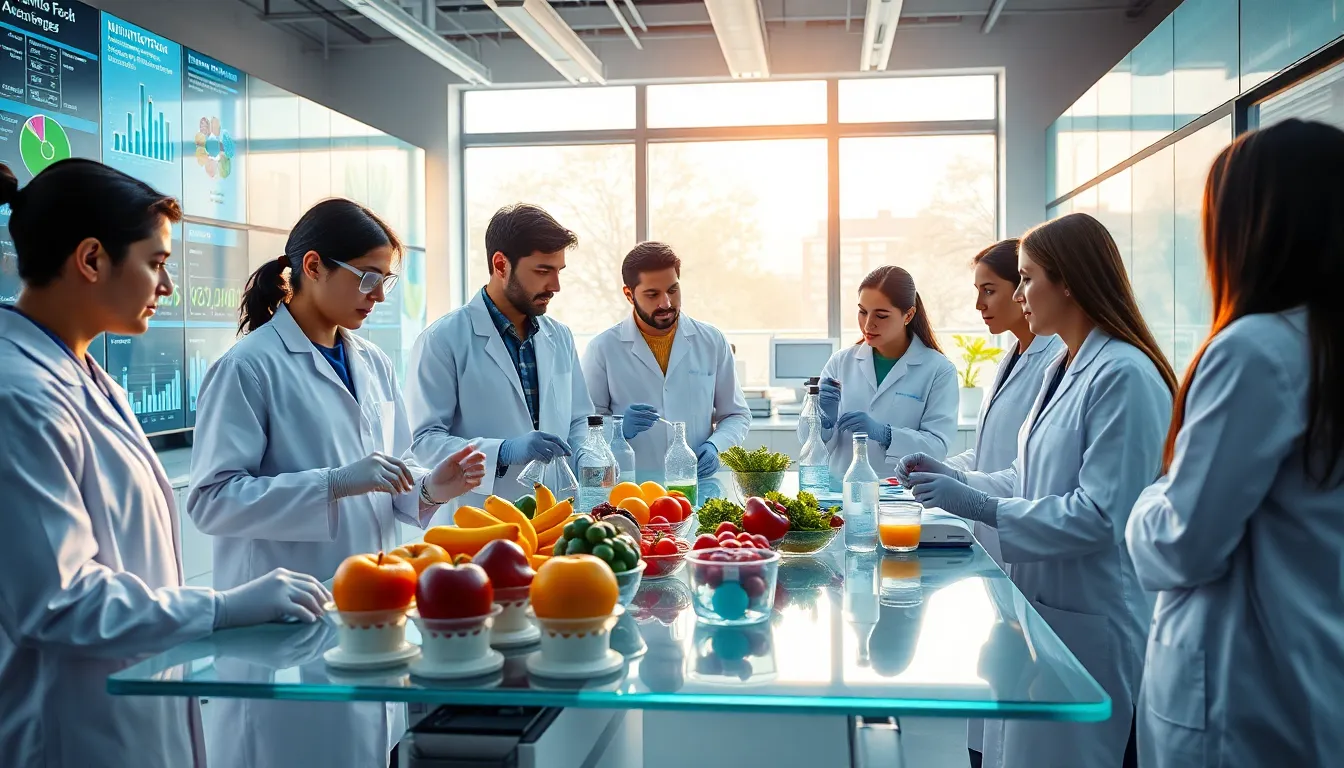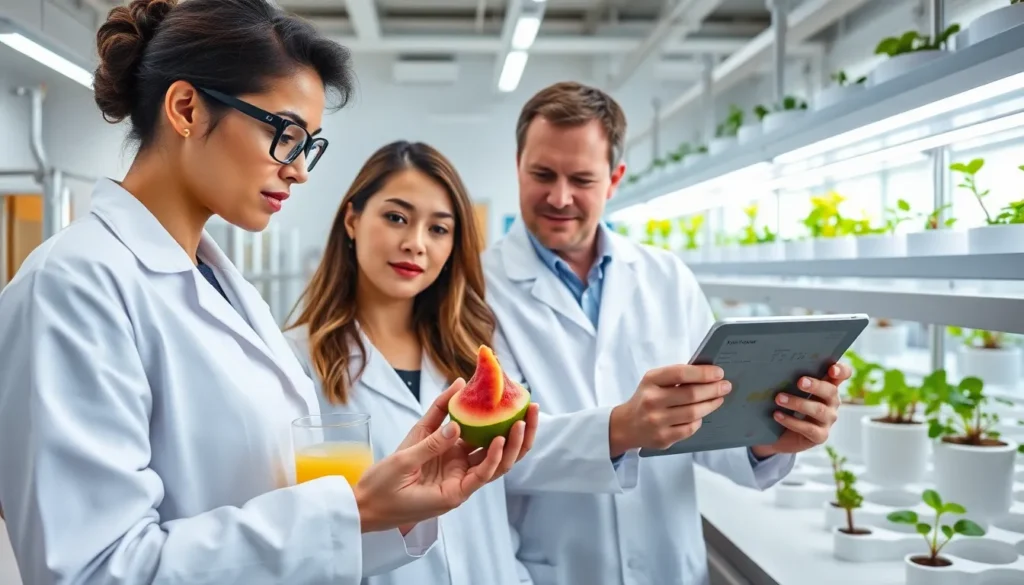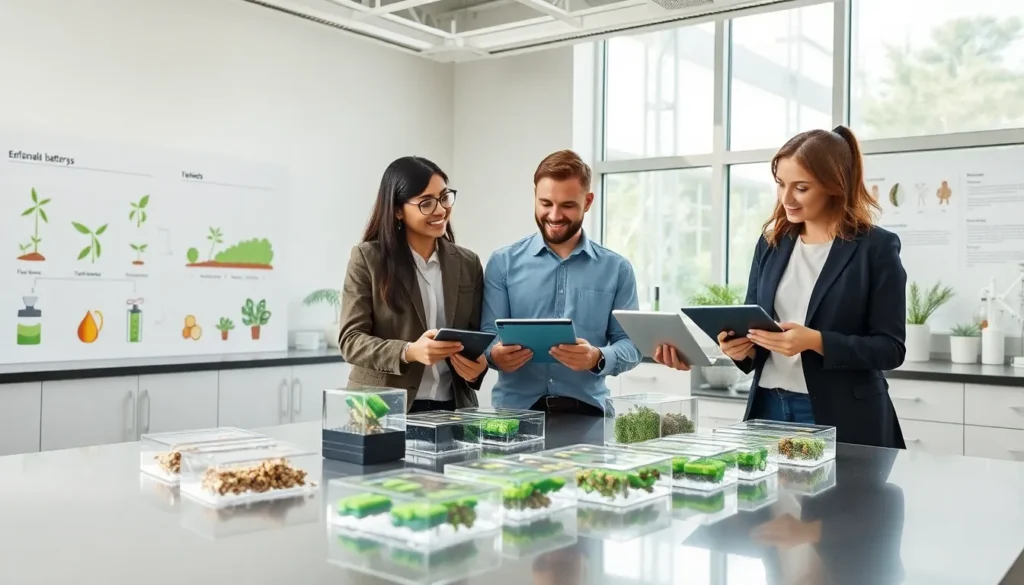Table of Contents
ToggleImagine biting into a perfect piece of fruit that’s been engineered to taste like your favorite dessert, or a meat substitute that practically begs you to upgrade your grill skills. Welcome to the intriguing realm of innovative food science and emerging technologies, where whizzes in lab coats whip up delicious solutions to help save the planet, combat health issues, and spice up our dinner plates. In this text, we’ll sink our teeth into how food science is redefining nutrition and agriculture led by groundbreaking advancements that ensure the food we consume is safe, sustainable, and downright scrumptious.
The Role Of Food Science In Modern Nutrition

Food science plays a pivotal role in modern nutrition by marrying technology with our eating habits. It explores how the nutrients we consume impact our overall health, leading to healthier food options that cater to dietary preferences. From gluten-free goodies to protein-packed snacks, each innovation ensures consumers find what suits their taste buds and wellness. Further, food scientists dive deep into the analysis of food composition, enhancing nutritional value while stripping away unnecessary additives. This pursuit has spurred the development of fortified foods loaded with vitamins and minerals aimed at battling deficiencies. Also, thanks to advances in food science, personalized nutrition is becoming a reality. A growing field utilizes genetic information to create tailored diets for individuals based on their unique needs. By optimizing dietary intake, food science significantly increases the potential for healthier lifestyles across various demographics.
Sustainable Agriculture And Food Production
Sustainable agriculture is undeniably the bedrock for food production in today’s world. It emphasizes practices that meet current food demands without compromising the earth’s ability to provide for future generations. Cutting-edge technologies are helping farmers increase yields while reducing their environmental impact. Precision agriculture employs satellite mapping and IoT devices to monitor crop health and soil conditions, allowing farmers to apply resources more efficiently. Also, vertical farming ventures bubble up in urban landscapes, maximizing land use and minimizing transportation emissions. You wouldn’t believe it, but these farms can grow fresh produce a stone’s throw away from your local market. Hydroponics and aeroponics are emerging as preferred techniques in these setups, enabling plants to flourish without soil using nutrient-rich solutions. It’s not just about saving the planet: sustainable agriculture also champions consumer transparency. With traceable supply chains, shoppers can enjoy their meals with peace of mind, knowing where their food comes from and how it was produced.
Advancements In Food Safety Technologies
Food safety remains a top priority, especially as our appetite for new flavors and exotic ingredients continues to expand. With the rise of globalization, food products are crossing borders like never before. Thankfully, technology has stepped in to ensure safety at every stage of the food chain. Various innovations enhance tracking systems, enabling real-time monitoring of food safety. For instance, blockchain technology guarantees traceability, while smart packaging incorporates sensors to detect spoilage. These advancements make it easier for companies to recall contaminated products swiftly, protecting public health. In the laboratory, researchers are developing high-throughput testing methods to identify pathogens within minutes rather than days. Imagine the peace of mind knowing those tantalizing gourmet cheeses you devour have passed rigorous safety tests before reaching your plate. Food safety technology continues evolving, keeping hazardous food-borne illnesses at bay.
Novel Ingredients And Food Formulation Techniques
Innovative food products start with novel ingredients and creative formulation techniques, pushing the sensory boundaries of taste and texture. Food scientists work tirelessly to discover new flavors, textures, and nutritional profiles, including plant-based proteins and fortified foods that cater to diverse diets. The trend towards plant-based diets has spurred innovation, with companies transforming commonplace legumes into delicious burger alternatives. Techniques like extrusion, which creates optimum textures and preserves nutrients, redefine how food products are formulated. Meanwhile, fermentation is making a comeback, offering probiotic benefits while transforming traditional foods into tasty masterpieces. Novel ingredients such as algae and insects are gaining traction, too. Not only are they sustainable, but they also pack a nutritional punch, leading many health-conscious consumers towards these alternatives to boost balanced diets.
Impact Of Biotechnology On Food Development
Biotechnology has undeniably revolutionized food development, streamlining production and enhancing flavor. Genetically modified organisms (GMOs) often take center stage in discussions about food innovation. While they have faced scrutiny, their benefits cannot be overlooked. Crops can be engineered to resist pests, reduce spoilage, and even enhance nutritional content. Crops fortified with vitamins increase health outcomes in at-risk populations worldwide. Also, biotechnology is instrumental in developing innovative solutions to address food security. For instance, techniques like CRISPR enable precise edits to DNA, allowing researchers to create more resilient crops that can thrive in harsher conditions. By creating adaptive, high-yielding varieties, biotechnology shows promise in feeding a growing global population while maintaining our ecological balance.
The Future Of Food: Trends And Innovations
So, what does the future hold for food? With the rapid pace of technological advancement and growing consumer awareness, several trends are set to shape our dining experiences. One prominent trend is the increasing demand for transparency and sustainability within the food industry. Consumers are becoming more conscious about their food choices, making it essential for brands to adopt eco-friendly practices. Also, innovations in personalized nutrition are poised to gain traction. As technology evolves, so too will the potential for customized meal solutions based on individual dietary needs. Artificial intelligence plays a role in analyzing data from preferences to dietary restrictions, providing tailored meal planning. Also, lab-grown meats are no longer the stuff of science fiction. With burger chains rolling out these products, consumers can enjoy guilt-free indulgence in their favorite dishes. Emerging trends paint an exciting picture for anyone interested in food science and technologies.




